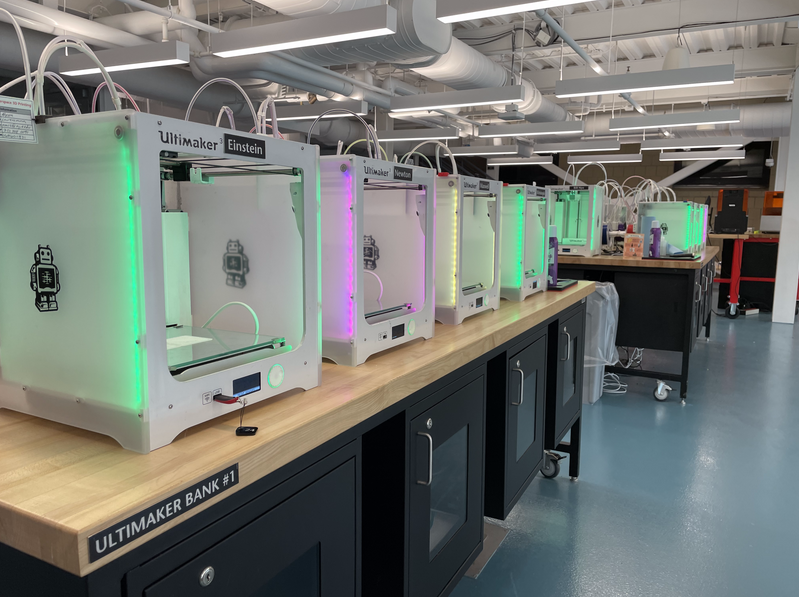Walking into the Makerspace, students are immediately greeted by a familiar design found in many startups; the layout is open, making all rooms visible to passersby to encourage learning in a hands-on environment. The staff is welcoming, warm and ready to help students make their dreams a reality. All students need to get in is a valid NJIT ID and a 30-minute introductory course covering safety, rules and an overview of the tools they will get access to. From there, the facility is their oyster.
Makerspace represents NJIT’s investment into giving their students a hands-on approach to learning, turning them from students into makers — and what an investment it is. Makerspace claims to be New Jersey’s largest educational facility of its kind, spanning 21,000 square feet and containing over $3,000,000 in state-of-the-art technology and tools. Inside, makers will develop hands-on skills using the technology and tools of the trade.
According to the Makerspace’s manager, Justin Suriano, that’s a necessary step forward. “It’s not enough to enter the industry with just book knowledge. You should be able to show that you can actually do something,” he explained. “Working with the technology in NJIT’s Makerspace gives you real-world experience with the machines you might be building parts or technology for.”
Phase one of NJIT’s Makerspace added the heavy machinery — including band saws, 3D metal printing, CNC lathes, woodworking, metalworking and more. The hazardous level of the tools being used meant an increased need for supervision. However, phase two needs much less supervision. Makers of any level, degree and measure of experience can learn to use the tools of the facility through guided lessons by Makerspace’s helpful staff.
The NJIT Makerspace also is unique in that everything created within the space that is designed by the student remains the student’s intellectual property. This differs from traditional makerspace models and allows makers to pursue their vision without fear of losing their rights.
Despite being a mainstay in previous semesters, Makerspace 2.0 has seen a slower restart as students ease back into their day-to-day lives. “The ongoing struggle is that this is mostly a commuter campus,” Suriano said. “Students go to class and head home. We want to influence the culture in a way that gives students a reason to stay and make!”
With less initial demand, makers can get a better understanding of the tools without the pressure to work more quickly. In fact, that’s a motto Make101 students will pick up quickly: “Slow is smooth and smooth is fast.” The demand in Makerspace tends to pick up towards the end of the semester as students begin building their prototypes for final projects and their senior capstone projects. That makes the start of the semester prime time for students to start exploring Makerspace and all it has to offer.
To ease back into in-person classes, Makerspace is currently running a rocket bottle challenge where makers can compete to create low-orbit soda bottle rockets, aided by 3D printers, laser cutters and the staff every step of the way. Trials are continuing throughout September and culminate in the competition day on Oct. 1, where makers can win Visa gift cards ranging from $100-$200.
For those that miss the Rocket Bottle Challenge, there is plenty left to be excited about. Makerspace will be hosting a MakerSpeaks series throughout the rest of the year with industry experts giving talks on technology and their experiences within the industry. Next semester hopes to add a course-long project for makers to test the knowledge they’ve learned in classes and drive their imaginations. Makerspace plans to offer additional long-term courses, adding to the Advanced Manufacturing and Mechatronics Training Program, which incurs extra fees. For more information, visit https://www.njitmakerspace.com or stop by the facility located within the GITC building.





























